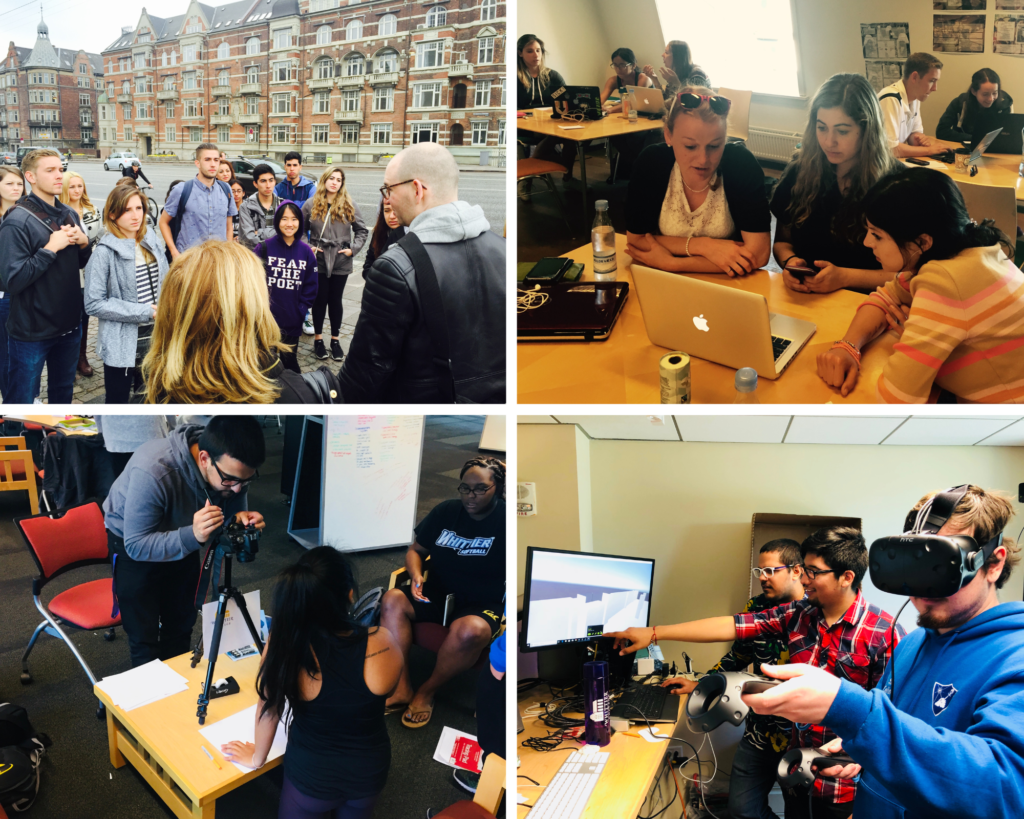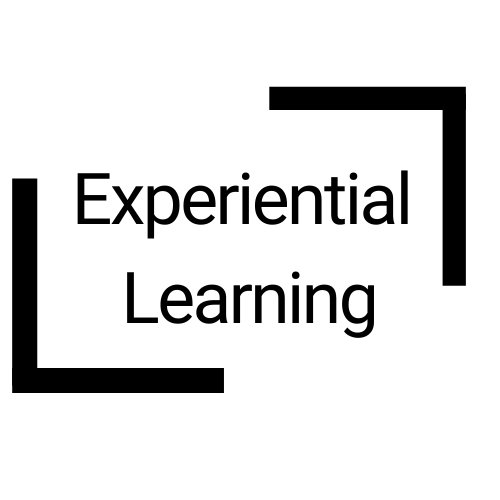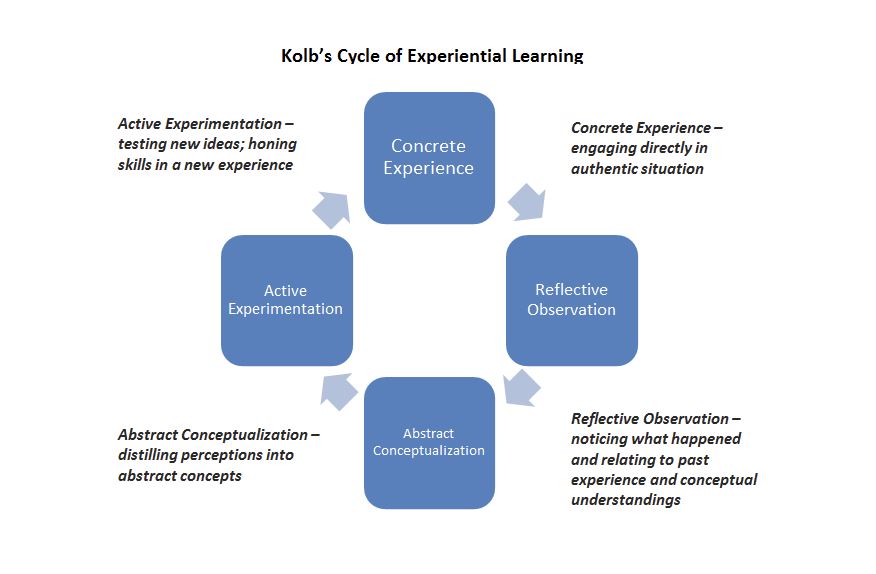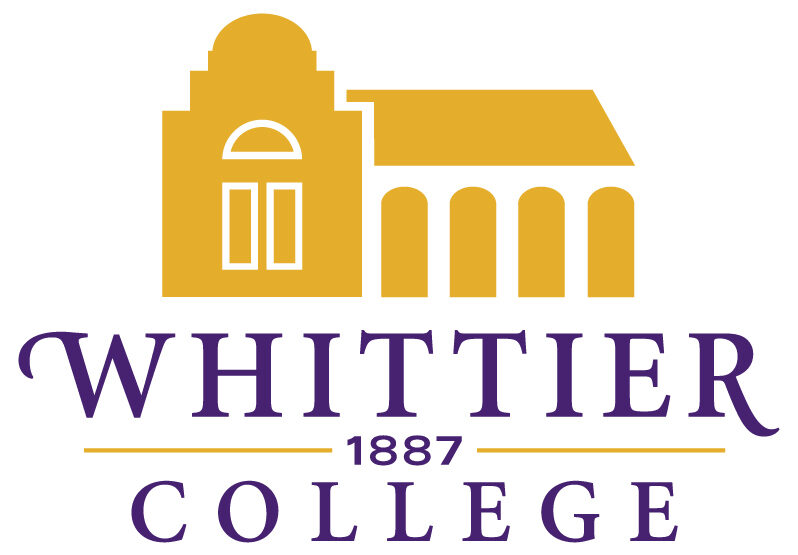

Experiential learning is an engaged learning process whereby students “learn by doing” and by reflecting on the experience. Through experiential learning, students connect theories and knowledge learned in the classroom to real-world situations.
While many experiential learning activities will take place outside of the classroom (internships, fellowships, study abroad, travel courses, on-and-off campus jobs, etc.), this page aims to address the activities we can integrate into our classrooms.
Here are some examples of EL activities that might be relatively easy to implement:
- conduct a hands-on experiment
- flip the classroom and have students lead the discussion
- create public-facing content (podcasts, web pages, tik tok and IG stories, etc.)
- have your students research and debate an issue from a given perspective
- host performances, exhibitions or seminar presentations
- engage in role playing activities such as: ask students to write/present from the perspective of an author/leader/influential figure
- use government documents to synthesize a persuasive argument
- take your class on a fieldtrip and ask them to write about the experience
- think of a way to use Uptown Whittier as a lab/classroom
- conduct research and present it at SCCUR/another conference
- invite scholars/community members/alumni/other faculty to a class for a workshop
- collaborate with your colleagues’ classes on an in-class project (e.g. can the data from a science class be used to construct a public service campaign in a design class?)
- gather and/or interpret data
- have groups within a class debate the multiple perspectives on an issue
- use teaching technology tools such as Kahoot!, Flipgrid, Padlet, etc. to solicit hands-on classroom participation and assess student learning

Experiential Learning SLOs:
These would be used to assess all forms of experiential learning including PBL, breadth, senior capstone and co-curricular.
Life-Long Learning & Development: The enthusiasm, skills, and intentionality to be adaptable over time and in various personal, career, and cultural contexts through ongoing development in knowledge, competencies, character, and social capital.
● Identify and use appropriate campus resources and engage in opportunities that contribute to their learning within and beyond the classroom.
● Develop positive relationships with peers and faculty and staff members by engaging in community building activities and creative collaboration.
● Identify and apply strategies to effectively manage time and priorities.
● Identify relevant academic policies, processes and resources related to their academic success and timely attainment of degree requirements.
Integrative Learning: The ability to connect and synthesize disparate ideas and experiences and apply learning to new, complex situations.
● Select and develop examples of life experiences, drawn from a variety of contexts, to illuminate concepts/theories/frameworks of fields of study. (connections to experience)
● Independently draw conclusions by combining examples, facts, or theories from more than one perspective. (connections to discipline)
● Adapt and apply skills, abilities, theories, or methodologies to new situations. (transfer)
● Evaluate changes in one’s learning over time, recognizing complex contextual factors (reflection and self-assessment) Portfolio.
Learning Possibilities with Experiential Learning
Example: The 19th century Maritime Northeast Asia had warring kingdoms, samurais, and pirates, all mingling and penetrating each other’s space. The history itself is mesmerizing and stimulates deep inquiry into the complexity of politics, societies, and economies. What if the instructor created a scenario in which a student became a Chinese bureaucrat in this region in 1868, with the task of implementing a new law from the Qing Court? How would he go about making the decree? The “created” experience encourages students to investigate the actors, networks, rules, and taboos in this locale at that moment.
Additional Examples by Faculty/Departments
Art: Graphic Design I students spend the semester designing a zine that they then produce. Graphic Design II students use Tony’s poetry class’ poems to collaboratively design books and window installations. Senior designers rebrand local organizations (logos, websites, etc.). Art History students write about the art on campus. Studio art classes could curate and mount an exhibitions at the end of the semester.
Music/Humanities: Film Music students redesign a film scene soundtrack. INTD 100 students create and film a commercial for a product designed by their peers. J.S. Bach students could research and present conference-style papers at the Music Department’s annual Bach Festival. Conducting students use College Choir as a workshop in which to practice conducting an actual ensemble under faculty supervision. All ensemble classes prepare for and present multiple performances during the course of a semester.
Sociology: In Housing and Homelessness in LA class we participate in the homeless count for the city of Whittier. We have also attended shelters and spoken to the workers there to learn more about the struggles that they face. In race and racism course I plan on doing a field trip to the Academy of Arts museum to go along with a group project that they will do where they look at quantitative data of representation of BIPOC in popular culture. Becky’s class does toxic tours as a field trip. Julie’s immigration course offers both quantitative and qualitative data collection and analysis. In the 3rd year via methods they do practical research and methods with different groups in the Whittier area. In the 4th year they do their senior seminars which is where
they do original research.
Languages: In terms of the language classroom, experiential learning is a natural fit for instructors and students who are interested in and searching for concrete and deliberate engagement with the target language community. In fact, the National Standards Collaborative Board includes “Communities” among the goal areas of the World Readiness Standards for Learning Languages, arguing that “learners use the language both within and beyond the
classroom to interact and collaborate in their community and the globalized world” and that “learners set goals and reflect on their progress in using languages for enjoyment, enrichment, and advancement.” By extending the classroom into the community, students gain more exposure to the target language and culture in an authentic way that the classroom experience may not always be able to provide. Example from SPA120/121/220/221/222/325: Collaboration on biweekly basis with Spanish-speaking partners of the Nuestra Voz Program at the Boys and Girls Club of Whittier. Collaboration on curricular design of hands-on activities, digital stories, and presentations.
Chemistry: Our organic chemistry, instrumental analysis, and environmental chemistry courses all utilize project-based learning.
Religion: Almost every REL course includes some form of EL, 1-2 per course – field trips and guest speakers or practitioners provide applied and experiential learning opportunities related to the course topic. For example, REL GEN 307 Religion and the Body includes class sessions focused on yoga, mindfulness meditation, and tai chi (rooted in readings, led by community practitioners, followed by student reflections for integrative learning).
Sciences in general: Students in the natural sciences often attend SCCUR to present their work. Students also frequently attend larger national meetings.
Creative Writing: Creating, attending, and/or participating in Poetry Slams and/or Spoken Word events; submitting creative work to literary journals/magazines; creating your own or group literary magazines/journals; creating vlogs, TikTok series, IG stories, etc. about poetics and/or your own poetry; internships at small presses or literary magazines/journals or literary centers in LA area (Beyond Baroque, World Stage, Sims Library of Poetry, Poetry.LA, Los Angeles Review of Books, Los Angeles Review, PEN International, Angel City Review, Omnidawn Press, Rattle Poetry Magazine, Red Hen Press, etc.); starting your own poetry workshop and/or book club.
Examples of Experiential Learning at Whittier College
- First Year Seminars in Project-Based Learning
- Digital Storytelling: EPA Action Day, Green Religion, Psychology
- Faculty-Led Travel
- Social Work Senior Seminar
- Whitman and Melville Experimental Media Essays
- Political Anthropology using Stop Motion Animation
- Digital Essays in Physics
- Oral History Projects
- English 201 Journalism
- English 135 Eat Your Words: Food, Culture and Writing
The Values of Experiential Learning
- Develop empathy: By engaging with the experiences and perspectives of others, students can develop deeper empathy and understanding.
- Foster critical thinking: Students learn to analyze and interpret complex social and cultural issues critically.
- Build cultural competency: Direct engagement with different cultures enhances students’ ability to navigate and appreciate cultural diversity.
- Encourage ethical reasoning: Confronting real-world ethical dilemmas helps students develop their moral compass and ethical reasoning skills.
- Test practical skills: Students develop emerging practical skills such as policy analysis, strategic planning, negotiation, and advocacy.
- Experience real-world applications: Trainees learn to apply policy theories and tools in real-world contexts, enhancing their ability to make informed decisions.
- Promote professional development: EL may provide networking opportunities and professional experiences that are valuable for career advancement.
